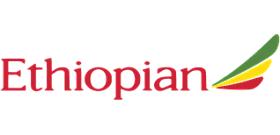 Ethiopian Airlines Posts $7.6B Revenue as Continental Hub Strategy Pays Off
Ethiopian Airlines Posts $7.6B Revenue as Continental Hub Strategy Pays Off
Africa's aviation landscape witnessed a defining moment as Ethiopian Airlines delivered exceptional financial results for the 2024/25 fiscal year, cementing its position as the continent's undisputed carrier champion. The Addis Ababa-based airline reported \$7.6 billion in total revenue alongside record passenger volumes, demonstrating how strategic fleet expansion and network growth can drive sustainable profitability even amid challenging global conditions.
The carrier's remarkable achievement becomes even more impressive when examining the operational metrics behind these numbers. Ethiopian Airlines transported 19 million passengers during the fiscal year, representing an outstanding 11.8% increase from the previous year's 17 million travelers. This growth trajectory translates to approximately \$400 revenue per passenger, indicating strong yield management and premium service positioning that African travel professionals should recognize as industry-leading performance.
Fleet modernization emerged as a cornerstone of Ethiopian's success strategy, with the airline taking delivery of 13 new aircraft despite global supply chain disruptions affecting manufacturers worldwide. This expansion included advanced widebody aircraft such as the Airbus A350-1000, Boeing 787-9 Dreamliners, and Boeing 777-9X variants, alongside narrowbody Boeing 737 MAX 8 units that enhance medium-haul operations across the continent.
The strategic significance of this fleet expansion extends beyond mere capacity increases. Each new aircraft enables Ethiopian to serve approximately 1.46 million passengers annually, demonstrating exceptional asset utilization that maximizes return on investment while supporting ambitious growth targets. This efficiency ratio positions the carrier well ahead of regional competitors who struggle with lower load factors and suboptimal route planning.
Network expansion proved equally crucial to Ethiopian's financial success, with six new international destinations joining the carrier's extensive route map during 2024/25. These additions included Madrid, London Gatwick, Lisbon, Amsterdam, Hanoi, and Bangui, strategically connecting African markets with key European and Asian business centers while strengthening intra-continental connectivity through the Central African Republic capital.
The selection of these destinations reflects sophisticated market analysis and revenue optimization strategies. European routes to Madrid, Lisbon, and Amsterdam tap into growing demand from African diaspora communities and business travelers, while London Gatwick provides additional UK capacity beyond existing Heathrow services. The Hanoi route represents Ethiopian's continued Asian expansion, offering African travelers direct access to Vietnam's emerging economy.
Each new destination serves approximately 3.17 million passengers annually across Ethiopian's network, indicating how route additions create multiplier effects that benefit the entire system. This interconnected approach enables the carrier to offer competitive connection times and comprehensive global coverage that attracts premium passengers willing to pay higher fares for convenience and reliability.
The financial results reveal a sophisticated business model that leverages international route profitability to offset domestic market challenges. While Ethiopian's domestic operations faced losses during the period, the carrier's global network generated sufficient revenue to maintain overall profitability and fund continued expansion. This strategy demonstrates how African airlines can overcome limited domestic market size through international diversification.
Ethiopian's success occurs against a backdrop of significant challenges facing African aviation, including infrastructure limitations, regulatory fragmentation, and intense competition from Middle Eastern carriers. The continent's aviation market remains highly fragmented, with blocked funds totaling \$919 million affecting airline operations across multiple countries. Despite these headwinds, Ethiopian's performance proves that well-managed African carriers can compete effectively on global stages.
The carrier's achievement gains additional significance when considering broader continental aviation trends. Only 19% of intra-African routes offer direct flights, forcing passengers to accept longer, more expensive journeys through international hubs. Ethiopian's expanding network addresses this connectivity gap while positioning Addis Ababa as Africa's premier aviation hub for both passenger and cargo operations.
Operational efficiency metrics reveal the sophistication behind Ethiopian's success. The airline's \$1.05 billion operating profit represents a 12% increase from the previous year, while net profit before tax reached \$860.3 million despite a slight 4% decline. These figures indicate strong cost management and revenue optimization that enables sustainable growth while maintaining financial stability.
The carrier's fleet strategy extends beyond passenger operations to include specialized aircraft for unique market segments. Recent orders for De Havilland Twin Otter 300-G aircraft demonstrate Ethiopian's commitment to serving remote destinations that larger aircraft cannot access, while evaluation of up to 20 regional jets suggests continued expansion into underserved markets across the continent.
For African travel professionals, Ethiopian's performance provides valuable insights into successful airline management strategies. The carrier's focus on hub-and-spoke operations, premium service standards, and strategic route selection creates a template that other African airlines might emulate. The \$400 revenue per passenger benchmark also establishes performance targets for regional carriers seeking to improve their financial sustainability.
The broader implications for African aviation development are profound. Ethiopian's success demonstrates that continental carriers can achieve world-class performance standards while maintaining African ownership and operational control. This achievement challenges assumptions about African aviation capabilities and provides inspiration for other national carriers pursuing similar growth strategies.
Looking ahead, Ethiopian's continued expansion plans suggest even greater opportunities for African travel professionals. The carrier's evaluation of additional aircraft orders and route development indicates sustained growth momentum that will create new partnership opportunities and enhanced connectivity options for travelers across the continent and beyond.
The airline's commitment to sustainability and technological innovation also positions it well for future market developments. As environmental concerns increasingly influence travel decisions, Ethiopian's modern fleet and efficient operations provide competitive advantages that align with evolving passenger preferences and regulatory requirements.
Ethiopian Airlines' remarkable 2024/25 performance establishes new benchmarks for African aviation excellence while demonstrating the continent's potential to compete successfully in global markets. For travel professionals across Africa, these achievements signal expanding opportunities and enhanced service standards that benefit both industry stakeholders and the traveling public throughout the region.
